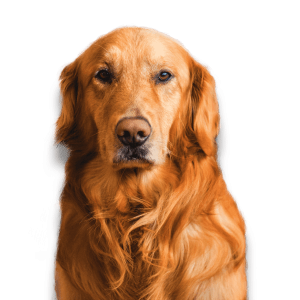
General Information
You may be wondering what exactly is going to happen during your dog’s health check now that you have booked them in for an appointment. Health checks will vary somewhat from clinic to clinic and depending on what exactly your dog is being seen for. For example, a health check on a brand new eight-week-old Chihuahua may differ somewhat from a check for a ten-year-old senior Dalmatian that has been feeling under the weather.
Some health checks, such as those carried out on a six-monthly basis in between annual vaccines, may be carried out by a veterinary nurse. Others, such as those for a pup’s first vaccines, will be carried out by a veterinary surgeon. Every staff member will have their own routine and style, so don’t be shy to request a specific person that you feel you and your pet get along with best.
The Weigh-in
Most visits will start with a trip to the weighing scales. For some dogs, this is a walk in the park, while others may be quite daunted by the scales so need some training and treats to get used to them. Regular weight checks are recorded on the animal’s clinical records and can be very useful in determining if a patient is gaining or losing weight.
The Greeting
Next up, it’s time to go into the consultation room. Again, some dogs can be timid, so it’s always a good idea to reassure them and to reward them with treats as they enter. Try to allow the dog to make the decision to enter, rather than forcing them in against their will; bribes such as chicken pieces work well! The vet (or nurse) will greet you and your pet and ask some open-ended questions to determine whether you have any specific reason for visiting and to get an overall idea of how your pet has been getting on recently.
Settling your Dog in
Veterinary staff will always try their best to ensure your dog feels right at home in the clinic. They may offer their hand for a sniff and bribe them with a tasty treat or two, as well as a quick cuddle, to get them on side. It’s important that your dog feels calm and confident as this will allow an easier and more thorough health check. Most dogs are assessed on the top of the consult table, though larger dogs, or very hyper ones, may be better assessed on the ground. It’s important for owners to have good restraint at all times, so the use of a harness and an extra pair of hands can be beneficial.
The Basics
Most vets will have a routine that they go through. A typical starting point is to first check that a dog’s microchip is working, then to assess their body condition score and make a general assessment of the pet. They will be assessing their coat and skin quality, determining if they seem uncomfortable in any areas and trying to get an overall impression of their general health. They will then move on to make a more detailed assessment, perhaps working from nose to tail. They will check over every part of the dog, including inside their ears and mouth, checking for any abnormalities. The heart and lungs will be listened to with a stethoscope. Sometimes, the temperature will be taken.
Some Probing Questions
Though it may feel like an inquisition as the vet asks you question after question, it’s vital that they obtain a thorough history. Things that may not seem too important to you (such as an increase in appetite or a new ‘funny smell’ coming from the ear) may provide important information. Owners are usually asked about all manner of things, ranging from eating and toileting habits to exercising and sleep routine. You may even be asked about recent trips abroad and the environment in which the dog is kept.
Routine ‘Housekeeping’
In a typical visit, any vaccinations that are due (such as the boosters for any vaccines that are due that year) are given once the dog is found to be in good health. As well as this, parasite prevention such as worming tablets and external parasite spot-ons can be dispensed for the next few months. As the dose of these medications is weight dependent, it’s a good idea to have them prescribed on the same day the animal is weighed. For those animals who receive regular medications, such as joint medicines or allergy tablets, they may be dispensed at the same time.
Taking Things Further
Of course, not every health check will be routine and it is not unusual for something out of the ordinary to be picked up during the consultation. Some of the most common issues that are spotted include obesity, unexpected weight loss, dental disease, ear infections, skin growths, and skin disease. The vet may wish to order some further tests at this time (such as blood tests or ear swabs) and may need to prescribe some medicine. If any procedures are advised, such as a dental cleaning, an estimate will be provided and the procedure can be scheduled for a date in the future.